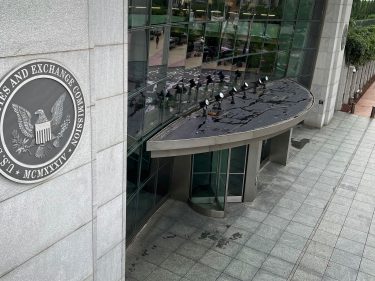CORRECTION (Oct. 8, 2024, 18:42 UTC): An earlier version of this story asserted that FalconX lost track of who the 1.35 million solana tokens belonged to. FalconX said it never knew who sent the SOL, because no identifying information was tied to the transaction.
Crypto brokerage FalconX had 1.35 million solana (SOL) in its possession since 2021, but didn’t know who they belonged to.
Now worth around $190 million, the tokens turned out to be Binance’s, and they were recently returned to Binance.
Three years ago, 1.35 million solana (SOL) tokens appeared in crypto prime brokerage FalconX’s wallet.
According to FalconX, there was no record attached to the transaction identifying who sent the money. At the time, SOL fetched around $20 to $30 – making this a not-insubstantial sum that mysteriously landed in the company’s lap.
No one immediately emerged to claim the solana.
After FTX collapsed in late 2022, solana cratered below $10. But then it massively rebounded, and today those tokens are worth $190 million.
Recently, Binance, the largest crypto exchange and a key liquidity partner of FalconX, finally came forward as the rightful owner and asked for its SOL back. FalconX turned it over.
It’s unclear exactly how this apparent mistake was made. The situation raises questions about accounting systems and controls – though even at the newly elevated SOL prices, the misplaced tokens are chump change to Binance, which has over $110 billion of assets in reserve and services over 90 million customers worldwide.
A FalconX spokesperson, when contacted by CoinDesk, confirmed that there had been “a reconciliation anomaly” involving solana tokens and said there was no identifying information tied to the original transaction that brought the SOL into the broker’s life.
Binance, when contacted by CoinDesk, said its customers were never at risk of losing money as a result of the situation. Binance would’ve simply absorbed the loss itself if the 1.35 million tokens had never been found. A spokesperson said he couldn’t immediately comment on whether the transaction that sent 1.35 million SOL tokens to FalconX lacked identifying info.
In a joint statement to CoinDesk, the companies said the assets in question were being returned to Binance and that the matter was now fully resolved. “Binance and FalconX continue to operate business as usual,” according to the statement.
Mysterious transactions and reconciliation head-scratchers happen in traditional finance, too, but crypto could be uniquely prone to a situation of this sort, where assets go unclaimed for years, inflating hugely in value in that time. Of course, crypto is a new area of finance, running on rapidly evolving infrastructure, which is home to highly volatile assets.
Speaking broadly, big auditing firms like PwC agree the relatively young crypto space is potentially susceptible to such reconciliation issues. “Mainly I would say the unregulated space is where things are less mature and there is a weaker control environment,” said Peter Brewin, a partner at PwC Hong Kong who specializes in digital assets, Web3 and the metaverse with a focus on tax and regulation.
FalconX, which was established in 2018 and valued at $8 billion at the time of a mid-2022 funding round, offers institutional customers a dashboard to manage portfolios and connect to a range of crypto exchanges, custodians, market makers and prop shops. Altogether, the brokerage handles over 100 million transactions a month, using a complex system of omnibus and subaccounts.




